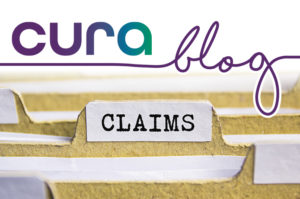Protection insurance claims - answering the public's common questions
Request a Callback
By clicking on submit I / We give consent for you to call me / us on the number provided to discuss my / our financial requirements.
Caring - Understanding - Reliable - Advice
Home » Guides & News » Protection insurance claims – answering the public’s common questions

Protection insurance claims – answering the public’s common questions
Uncertainty around protection insurance claims is one of the reasons why many people decide not to take out protection insurance.
Believe it or not, protection insurance claim payout rates are actually quite high, especially in comparison to other types of insurance, with 98% of claims being paid in 2020. 97% of life insurance claims and 99.99% of whole of life claims were paid in 2020, totalling over £4,378,000,000 (ABI, 2021).
This blog is all about answering some of the questions we see about protection insurance claims, so that you can get a true understanding of the process in case you were ever in the situation to need to know.
What is the insurance claim process?
If you’re needing to make a claim on your protection insurance, the first step is to let your insurer know and your adviser if you have one. The steps following that will depend on the type of policy that you’re wanting to claim on.
If the claim is on a life insurance or critical illness cover policy, the insurer will start to gather any information they need in order for the claim to be paid. For example, with a critical illness policy, the insurer will request a medical report from your GP surgery or other medical professionals to see the diagnosis which has been made.
Income protection is a little bit different, as this policy comes with a deferment period. This is a length of time which you must be off work due to illness before being able to claim on the financial aspect of your policy. The insurer will ask for the relevant evidence, such as a doctor’s sick note and they will then be able to make a decision on the claim.
Are protection insurance claims taxable?
Money that you receive from a pure protection insurance claim is not usually taxable. Meaning that the money you see on your policy documents is the money you can expect to be paid, but for life insurance cover you might need the support of a Trust to make sure that the policy is protected from tax. This is where an adviser can step in and really provide the support that you need.
Will my premiums increase if I claim on my policy?
Some policies will come to an end once a claim has been made, for example a life insurance policy and some critical illness policies.
Income protection policies will continue until you either cancel or it has come to the end of its term. Within the policy term, permitting your situation remains the same, such as earning a similar amount of money, your premiums will remain the same as stated in your original policy documents. Claiming on your policy should not increase the premiums.
There are times that policy premiums can increase, but for pure protection insurances a claim should not affect the premiums.
Are protection insurance claims ever denied?
Unfortunately, there are times where protection insurance claims are denied. That isn’t because insurers just decide they don’t want to pay out money. The main reason behind this is because of non-disclosure.
Non-disclosure is when a person doesn’t disclose something on their application which the insurer really should know. This could be something such as a past diagnosis or particular family medical history. There are times where people non-disclose so that they’re able to get better terms on their policy, but this can then cause issues if a claim is made. As insurers will request medical evidence when a claim is made, any information which they don’t already know may then come to light and result in the claim being denied.
Sometimes insurance claims are declined if a person has not kept up to date with their policy premiums. For things like life insurance, critical illness cover and income protection, this would usually need to be at least a few months worth of missed premiums.
There are also very sad times where a person has taken out an insurance policy and thought that it was going to do something that it isn’t designed to. This might be because they have done it themselves and haven’t fully understood the policy terms, or it could be that they have been misadvised by someone that has arranged the policy for them.
How long after taking a policy can a claim be made?
As soon as you arrange your policy you are covered for a potential claim. It’s a very extreme example but let’s say that someone arranges life insurance at 10am and dies in a car accident at 3pm, then the policy will pay out. One thing that we do need to add to this is that most life insurance policies in the UK have an initial 12 month suicide exclusion, and if the car accident was a deliberate act of self-harm then it wouldn’t pay out.
There can be times when insurers do look more closely at policy start dates and when a claim comes in. To use another example, let’s say that someone starts a policy and then 5 days later they are diagnosed with invasive breast cancer, the insurer will want to see some detailed medical reports about this before deciding upon the outcome of a critical illness claim. This isn’t the insurer trying not to pay the claim, they are simply wanting to double check the timeline of things, to see if the person was aware or suspected that they had breast cancer when they were arranging the policy.
Quite often, protection insurance claims aren’t as complicated as you might think. Of course, we’re more than happy to help answer any questions you may have, but on top of that we’re also on hand to help our clients throughout the whole claims process, should they wish for our help.
Related blogs
Answering the public’s common questions – life insurance edition
Categories: Access to insurance
Client Reviews








Talk to a Friendly Adviser
Get a Quote
What We Offer?
- Experienced and knowledgeable advisers
- Specialist advice with no fees to pay
- Full assistance with all of your paperwork
- Put your policy into trust at no cost
- A dedicated insurance adviser for you
Our Recent Awards






















